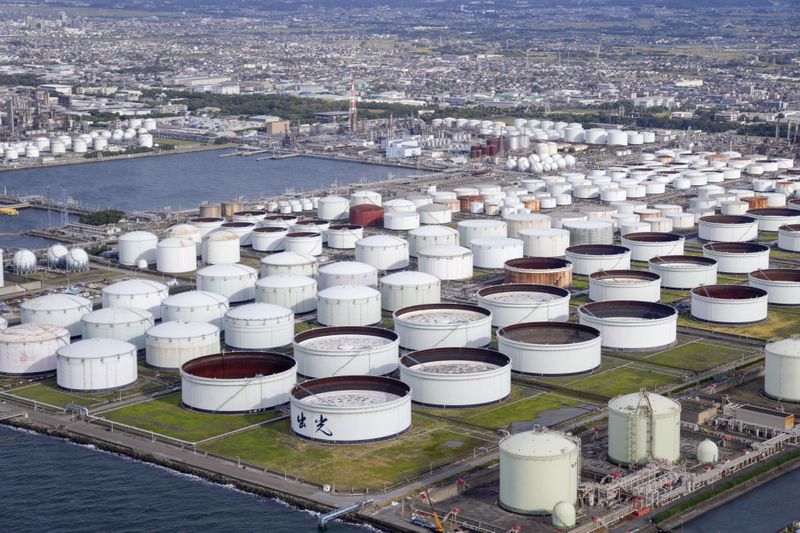SINGAPORE (Reuters) – A coordinated release from government oil reserves led by the United States may add about 70 million to 80 million barrels of crude supply, smaller than the more-than-100 million barrels the market has been pricing in, analysts at Goldman Sachs said.
“On our pricing model, such a release would be worth less than $2/bbl, significantly less than the $8/bbl sell-off that occurred since late October,” the bank said in a note titled “A drop in the ocean”, dated Nov. 23.
Global oil prices rebounded to a one-week high on Tuesday after the move by the United States and other consumer nations to release oil from strategic petroleum reserves (SPR) to try to cool the market fell short of some expectations.
On Wednesday, U.S. West Texas Intermediate crude was down 35 cents to $78.15 a barrel by 0031 GMT.
“The aggregate size of the release of about 70-80 mb (million barrels) was smaller than the 100+ mb the market had been pricing in, with the swap nature of most of these barrels implying an even smaller, about 40 million barrels net, increase in oil supplies over 2022-23,” Goldman said.
“That is in the context of a market drawing up to 2mb/d at present.”
Brent crude prices have also priced in an additional hit to global oil demand of 1.5 million barrels per day for the next three months from the impact of COVID-19 in Europe and China, Goldman said.
“We view these as likely excessive concerns over the next three months, leaving the recent sell-off overshooting fundamentals due to the year-end decline in trading activity,” the bank said.
While the coordinated government stock releases would warrant a $2 a barrel downgrade to the bank’s year-end Brent price forecast, it expects the lack of progress on negotiations with Iran to offset risks.
Global powers and Iran will meet on Monday to revive talks on a nuclear deal that could lift U.S. sanctions on Iranian oil, allowing Tehran to increase exports.
“In addition, OPEC could consider halting its production hikes to offset the detrimental SPR impact of lower oil prices on the needed recovery in global oil capex, likely justifying such action as prudent in the face of COVID demand risks,” the bank said.
(Reporting by Florence Tan; Editing by Kenneth Maxwell)

























